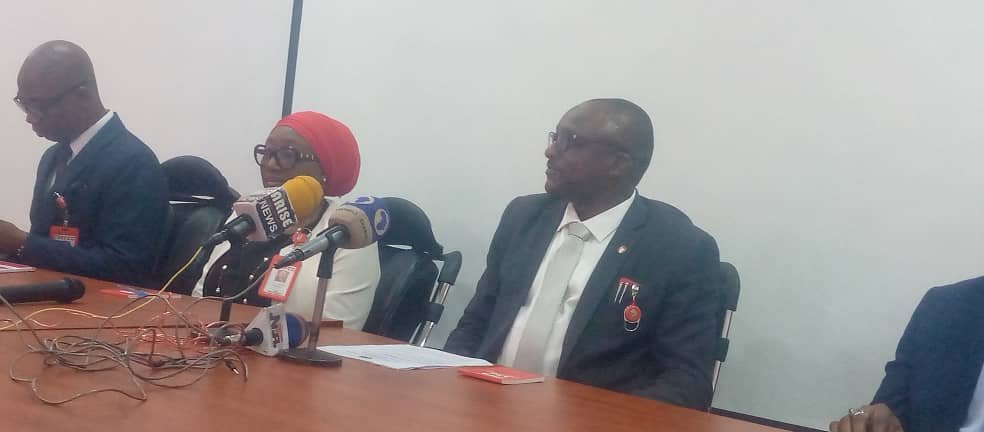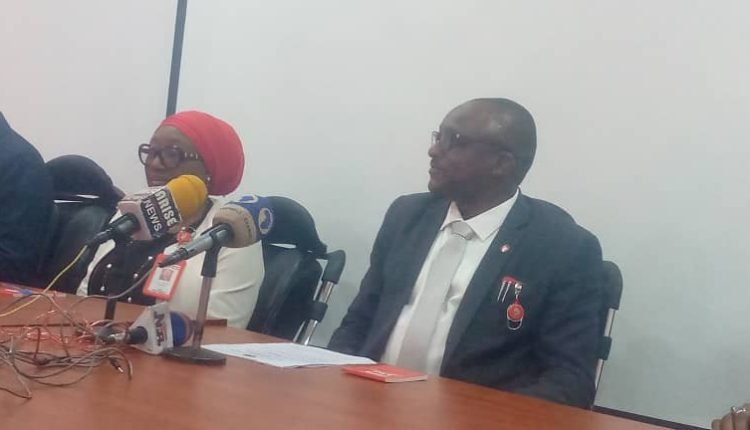Corruption Behind JAPA Syndrome In Nigeria–EFCC
BY ANKELI EMMANUEL,Sokoto
The Economic and Financial Crimes Commission (EFCC) today in Sokoto faulted corruption as one of the principal reasons behind the urge to travel out of Nigeria by most youths.
“If all things are working fine in the country, nobody would want to leave the country. We therefore want collaboration with Nigerians on how best to prevent economic and financial corruption to make our country better”,
“Mr Tony Orilade appealed
Orilade who is the Head, Public Interface Unit, EFCC Headquarters, Abuja spoke today while addressing newsmen and Civil Society Organizations, (CSOs) and Community Based Organizations (CBOs) at the Sokoto Zonal Command office of the commission.

While noting that EFCC alone cannot fight economic and financial crimes in Nigeria, Mr Orilade further appealed for collaborative efforts of all Nigerians to help them achieve their mission.
Supporting the call for collaboration towards preventing corruption in Nigeria, Aisha Muhammed, the EFCC’ s Head of Orientation and Enlightenment Unit, Abuja said CSOs and CBOs are critical stakeholders in the struggle towards mitigating economic and financial crimes.
Aisha, who noted that cybercrimes remained one of the greatest crimes effecting Nigerian youths lately, added that they are dedicated to public enlightenment on the ills of corruption using diverse platforms and engaging with CSOs, CBOs as they are doing in Sokoto today.
Responding to questions from newsmen, on whether or not plea bargain encourage corruption, ACE 1 Aliyu Yunusa said it’s an acceptable legal practice that the EFCC cannot say no to it.
Aliyu Yunusa who is the Zonal Commander of EFCC in charge of Sokoto, Kebbi and Zamfara States however added that, plea bargain sometimes is dependent on the gravity of the corruption involved.
On how recovered loots are used, the Zonal Commander, Aliyu clarified that some of the recovery funds are for individuals whose cases are reported to the commission by the petitioner.
He further added that those recoveries that are believed to have been looted from government are deposited in Federal Government account with the Central Bank of Nigeria (CBN).
“Most of such monies are forfeited to the Federal Government after Court judgement”. The Zonal Commander divulged.
Read Also: Food inflation: Dry season farming to the rescue?
Talking on the challenges faced by EFCC in preventing corruption, the Deputy Zonal Commander, Adesola Amusan listed citizens non compliance in investigations, lack of witnesses, religious and tribal sentiments as well as the laws which places huge constrain to effective prosecution of corrupt individuals.
“‘EFCC can not be the prosecutor and at the same time be the witness. Sometimes, we loss cases due to technicality of absence of witness. This is also in addition to how both religion and tribalism affects investigation and prosecution of corruption cases.
“Most worrisomely, is the fact that, our laws places the onus of proof of allegation of corruption on the prosecutor unlike in other climes where the accused is to prove his innocence beyond reasonable doubt”. Adesola decried.
Corruption Behind JAPA Syndrome In Nigeria–EFCC

